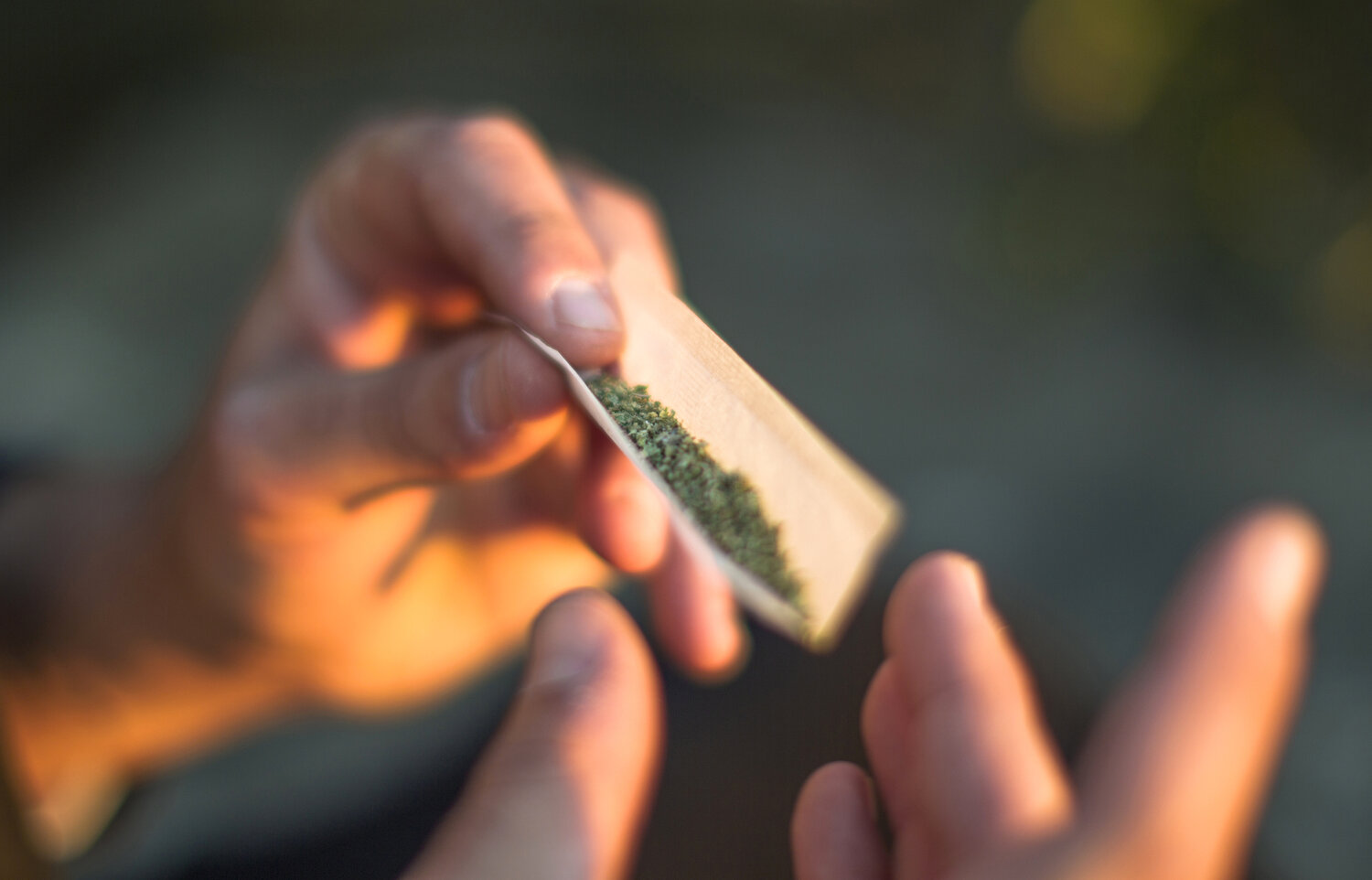State considers tightening regulations on marijuana smoke
Residents split over proposed marijuana smoking restrictions
Since New York State legalized marijuana in 2021, users no longer feel the stress of having to smoke in secrecy. According to state law, they can light up anywhere that cigarettes are permitted.
But many non-smokers are less than pleased about the new aroma of freedom. “I am constantly smelling weed,” said Jacardomy Ramos, a resident of Uniondale, adding that the pungent odor finds her whether she’s at home in her apartment, outside walking her dog or even running an errand at a store. “It’s everywhere.”
“The smell sucks, but what are you going to do?” Ramos said. “I equate it to someone cooking fish near me. It’s a nasty smell, but there’s nothing I can do about it, unfortunately.”
Ramos is not alone in her opinion of the smell of pot. Last month, Assemblyman Phillip Steck, a Democrat who represents the 110th District upstate, introduced a bill that would “prohibit the use of cannabis within thirty feet of a child or within thirty feet of any location in which children reside or attend for any recreational or educational purpose — including areas separated by walls, closed doors or floors within a building.” The bill also includes provisions for increased penalties for repeat offenders if they are caught smoking in those areas more than once.
The legislation would not apply to cigarette smoking.
“I have steadfastly supported marijuana legalization since I was first elected, and continue to do so,” Steck said. “However, I am not a libertarian with respect to marijuana, or anything else, for that matter. Marijuana and alcohol need to be regulated in the best interest of the entire community.”
Steck was moved to create the bill, he said, by the “concern over irresponsible behavior with marijuana that adversely affects the rights of others to raise their children as they feel is appropriate.” He noted marijuana’s powerful smell and the possible effects of secondhand smoke.
“No, you do not have a God-given right to engage in any behavior you want, at any time, in any place, under any circumstances,” Steck said. He added that this is just the first version of the bill, and that he is open to reasoned discussion about how to fairly regulate marijuana use.
But some local residents are not happy about the potential restrictions on cannabis use, and the fact that only marijuana smoke is being targeted. “I understand the concept, because you don’t want to influence children at that age to pick up a blunt, obviously,” said Mike Edwards, of Uniondale, who smokes regularly, “but I think where it gets incredibly irresponsible is that they’re limiting it to cannabis. If we’re going to take that route, then why are we not doing that with tobacco, which is proven to be considerably more damaging to the body, and why are we not doing that with alcohol? Both are easily accessible to children, and parents consume both.”
“People have a right to enjoy marijuana so long as it does not adversely affect the rights of others,” Steck said. “Further, the Centers for Disease Control has described significant adverse health effects from modern marijuana. That does not mean making it illegal; it just means taking a sensible approach to it.”
Steck was referring to a 2014 study by the National Institute on Drug Abuse, which concluded that regular marijuana use in the early teen years can lower a smoker’s IQ into adulthood. The study also examined the increasing potency of marijuana, and noted that it may produce more adverse health effects.
The health risks associated with smoking marijuana include short-term memory loss, slowed learning, impaired lung function, decreased sperm count in men, increased risk of heart attacks and strokes, greater risk of inducing bronchitis, coughs and phlegm production, increased heart rate, and low blood pressure.
Dr. Nancy Bono, the chair of family medicine at New York Institute of Technology, explained that there has not been enough research into the long-term and secondhand effects of marijuana smoke to say for sure whether outdoor secondhand smoke, or its smell, have any significant impact.
“It doesn’t make a difference whether it’s vaping or whether it’s cigarette smoke or marijuana, smoke in your lungs is bad for you,” Bono said, “but in terms of secondhand smoke, they don’t have much of a registry.”
The lack of research is attributable to factors including the hesitancy of many patients to admit to doctors that they smoke, and marijuana’s federal classification as a Schedule 1 narcotic under the Controlled Substances Act — the same classification as heroin and methamphetamine. A Schedule 1 label means that the drug has been deemed to have no accepted medical value — which many in the medical community dispute when it comes marijuana.
Nonetheless, the classification significantly limits researchers’ ability to obtain the proper permits, as well as grants and other funding, to undertake these studies.
President Biden has vowed to review marijuana’s status under federal law, saying, “Too many lives have been upended because of our failed approach to marijuana, and it’s time that we right these wrongs.”
According to Gahrey Ovalle, president of the Long Island Cannabis Coalition, one of the largest advocacy groups on the island, Steck’s proposed legislation would further harm communities like Uniondale, where minorities account for 75 percent of the population and the community is widely seen as underfunded and under-represented.
“What it looks like is an attempt to legalize pretextual stops in the homes and communities,” Ovalle said. “What we know about pretextual stops is that they overwhelmingly impact Black and brown New Yorkers, whether in our cars or walking down the street — and now with this bill, we face that same danger in our homes. This will only cause greater problems for already marginalized communities.”
According to data from New York City, 94 percent of the marijuana-related arrests made by the New York City Police Department in 2021 were of people of color. There is currently no similar data for Nassau County.
Nassau County Executive Bruce Blakeman declined to comment on whether he would support Steck’s legislation. In 2019, however, Blakeman warned of a “public health disaster” if recreational marijuana were to be legalized.









